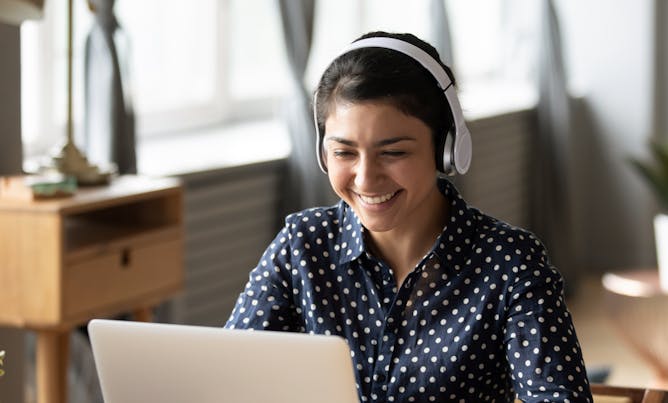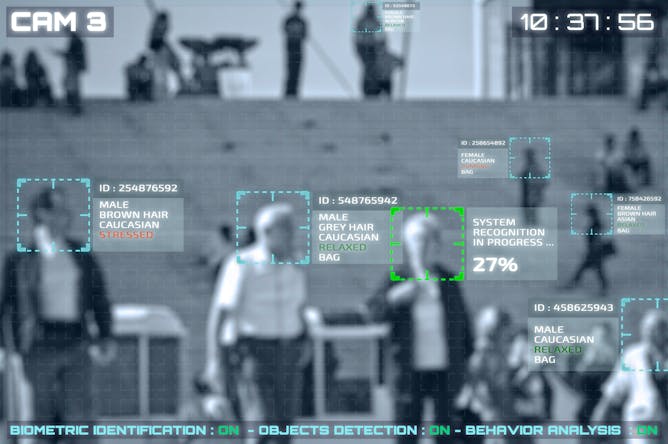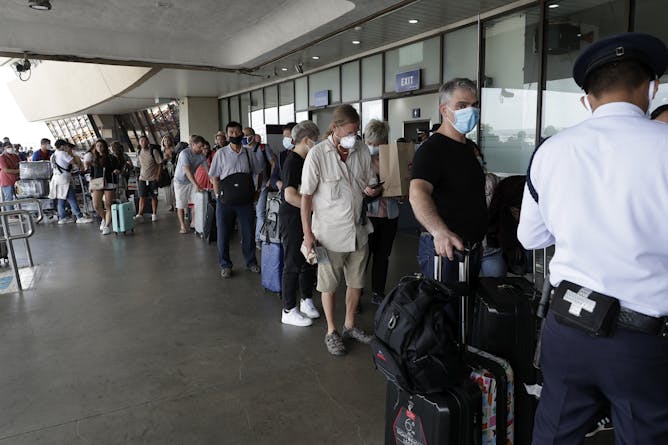|
Why do some religious movements seek immortality? Today in The Conversation Canada, Jeremy Cohen of McMaster University explores why some people believe in conspiracy theories and obvious snake-oil type hoaxes to cure infectious disease. What do these theories tell us about societies, and what challenges do they present for health-care workers and caretakers putting their life on the line to deal with the COVID-19 pandemic?
The article does not excuse the irresponsible behaviour of some conspiracy-theory-snake-oil believers. Still, the author asks readers to show some empathy: “Conspiratorial thinking can be founded on legitimate concerns and transcends socio-economic, racial, educational and gender boundaries."
It's one of several stories today about the coronavirus pandemic:
Regards,
|

FOX News host Sean Hannity (pictured here in 2018) gave credibility to a tweet he read out lout on his popular syndicated radio show, which called COVID-19 a fraud “to spread panic in the populace, manipulate the economy and suppress dissent.”
AP/Julie Jacobson
Jeremy Cohen, McMaster University
Why have conspiracy theories so easily circulated during the COVID-19 pandemic? What do these theories tell us about societies and what challenges do they present?
|

A universal basic income and a job guarantee are critical ways to help us weather the economic storm of the coronavirus pandemic.
(Shutterstock)
D.T. Cochrane, York University, Canada
A universal basic income could provide financially precarious people with the money they need. And it would keep money flowing through the financial system.
|

Human connections and meaningful interactions are an essential part of the learning process, especially online.
(Shutterstock)
Erika E. Smith, Mount Royal University
Empathy will help teachers, and others leading online transitions, prioritize relationships as society navigates this crisis.
|

Globally, billions of dollars in public funds have been committed for COVID-19 vaccine development. It’s crucial that the resulting vaccine be accessible to all.
(Shutterstock)
Jason Nickerson, L’Université d’Ottawa/University of Ottawa
Canada is investing millions to develop COVID-19 treatments, but there are no safeguards to ensure that those vaccines and medications will be affordable and accessible to the people who need them.
|

Facial recognition software could be applied to managing people during pandemics.
(Shutterstock)
Joe Masoodi, Queen's University, Ontario
Recently, police forces have come under criticism for their engagement of facial recognition technologies. But pandemic response plans may increasingly incorporate surveillance.
|

Voyager est risqué pendant l'épidémie de coronavirus. Les aéroports, les arrêts de bus et les stations-service sont particulièrement dangereux.
AP Photo/Joeal Calupitan
Rebecca S.B. Fischer, Texas A&M University
À travers le monde, des millions de personnes cherchent à regagner leur pays, ou à fuir dans des zones jugées moins risquées. Mais tous doivent évaluer les risques éthiques liés au voyage.
|
COVID-19
|
-
Martin La Monica, The Conversation
Citizens around the world look warily at the rates of illnesses and deaths at home and abroad as the economic effects of COVID-19 start to hit.
|
|
Business + Economy
|
-
Ken-Hou Lin, University of Texas at Austin; Megan Neely, Stanford University
While the Great Depression reduced inequality and closed the racial wealth gap, the Great Recession of 2009 did the opposite.
|
|
Science + Technology
|
-
Wolfgang Wüster, Bangor University; Kevin Arbuckle, Swansea University
Relax, snakes aren't out to get you.
|
|